2008
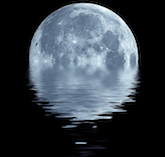
Baling Haojian's Three Turning Words
January 2008 | Cerro Gordo Temple | Santa Fe, NM
A thousand years ago, the whole of the koan way was summed up in a brief series of intriguing questions and answers : What is Zen? Snow in a silver bowl … What is the Way? The clear-eyed person falls into a well … What is the blown-hair sword? Each branch of coral holds up the light of the moon.
A thousand years ago, the whole of the koan way was summed up in a brief series of intriguing questions and answers : What is Zen? Snow in a silver bowl … What is the Way? The clear-eyed person falls into a well … What is the blown-hair sword? Each branch of coral holds up the light of the moon.
| I Baling Haojian's Three Turning Words, Introd | ||
| II Falls Into Well | ||
| III Coral Moon |
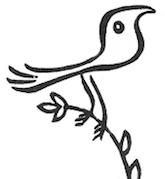
Spring's Luminous Tab
March 26, 2008 | Cerro Gordo Temple | Santa Fe, NM
Every moment has a luminous tab in it somewhere, which we can pull to immediately become intimate with it. We have koans for the moments when that isn’t obvious — portable luminous tabs to bring to any moment.
Every moment has a luminous tab in it somewhere, which we can pull to immediately become intimate with it. We have koans for the moments when that isn’t obvious — portable luminous tabs to bring to any moment.
| Spring's Luminous Tab |
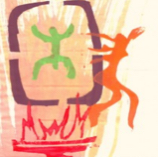
Yijing (Book of Change)
May-June 2008 | Cerro Gordo Temple | Santa Fe, NM
One of the streams that flowed into Chan and the koans was the mythology of pre-Buddhist, pre-Confucian China. Here are some notes on ancient Chinese ideas of meditation and awakening, based on Stephen Karcher's work on the Yijing (Book of Change). (image - Stephen Karcher)
One of the streams that flowed into Chan and the koans was the mythology of pre-Buddhist, pre-Confucian China. Here are some notes on ancient Chinese ideas of meditation and awakening, based on Stephen Karcher's work on the Yijing (Book of Change). (image - Stephen Karcher)
| Yijing I | ||
| Yijing II |
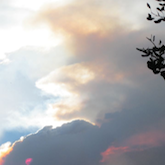
Whole Mind
July 3, 2008 | Cerro Gordo Temple | Santa Fe, NM
A fire rages, and the poet Robinson Jeffers speaks in his words and his life to how we hold terror and beauty, life and death, at such a time — and in the ordinary moments of our lives.
A fire rages, and the poet Robinson Jeffers speaks in his words and his life to how we hold terror and beauty, life and death, at such a time — and in the ordinary moments of our lives.
| Whole Mind |
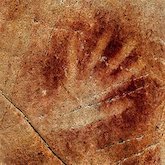
Ghosts Into Ancestors
September 27, 2008 | Springs Mountain Sangha | Colorado Springs, CO
Here are two talks, shared with Sarah Bender, Roshi, about turning the ghosts of our beloved and not-so-beloved departed into ancestors, ancestors who begin blessing us immediately by reminding us that we live in many more worlds than the tangible one. It's the season for setting the ancestors free that they might come back to us, bringing continuous blessings, unexpected blessings, from their perspectives on the mountaintops, under the river, in the sky, right next to us on the sofa.
Here are two talks, shared with Sarah Bender, Roshi, about turning the ghosts of our beloved and not-so-beloved departed into ancestors, ancestors who begin blessing us immediately by reminding us that we live in many more worlds than the tangible one. It's the season for setting the ancestors free that they might come back to us, bringing continuous blessings, unexpected blessings, from their perspectives on the mountaintops, under the river, in the sky, right next to us on the sofa.
| Ghosts Into Ancestors I | ||
| Ghosts Into Ancestors II |
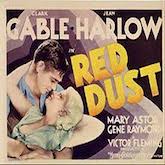
Red Dust
October 2008 | Cerro Gordo Temple | Santa Fe, NM
When I was a child I was deeply affected by A Pilgrim’s Progress, a Christian story of the spiritual journey rich in images of the emotional landscape like the Slough of Despond. I’ve always wanted to tease out of the koans a similar landscape of pilgrimage, and here are two talks that were an early run at that. We begin in the Red Dust, an ancient Chinese name for the world of our ordinary lives, take off for a sojourn Deep in the Mountains, and return eventually to Sitting by the Charcoal Fire. For some of us, life in the Red Dust presents questions the Red Dust can’t answer, so we look for gates that open into wild and solitary mountain paths. Eventually, though, we return, transformed, to a Red Dust world transformed by our transformation. The raging conflagration of the Buddha’s Fire Sermon has become the steady, warming glow of the Charcoal Fire, a good place to unthaw our toes and listen to stories.
When I was a child I was deeply affected by A Pilgrim’s Progress, a Christian story of the spiritual journey rich in images of the emotional landscape like the Slough of Despond. I’ve always wanted to tease out of the koans a similar landscape of pilgrimage, and here are two talks that were an early run at that. We begin in the Red Dust, an ancient Chinese name for the world of our ordinary lives, take off for a sojourn Deep in the Mountains, and return eventually to Sitting by the Charcoal Fire. For some of us, life in the Red Dust presents questions the Red Dust can’t answer, so we look for gates that open into wild and solitary mountain paths. Eventually, though, we return, transformed, to a Red Dust world transformed by our transformation. The raging conflagration of the Buddha’s Fire Sermon has become the steady, warming glow of the Charcoal Fire, a good place to unthaw our toes and listen to stories.
| I Red Dust | ||
| II Red Dust |
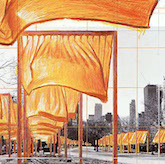
Gates
October - November 2008 | Cerro Gordo Temple, Santa Fe, NM | Pacific Zen Institute, Santa Rosa, CA
Looking at dharma gates, the ancestors, the Great Mysterious at the heart of things, and more, from the perspective of Yunmen’s “In the whole world, in the midst of the cosmos, there is a treasure, hidden in your body. Holding a lantern, it goes toward the buddha hall. It brings the great triple gate and puts it on the lantern.”
Looking at dharma gates, the ancestors, the Great Mysterious at the heart of things, and more, from the perspective of Yunmen’s “In the whole world, in the midst of the cosmos, there is a treasure, hidden in your body. Holding a lantern, it goes toward the buddha hall. It brings the great triple gate and puts it on the lantern.”
| Gates I | ||
| Gates II | ||
| Dharma Gates of the Ancestors |